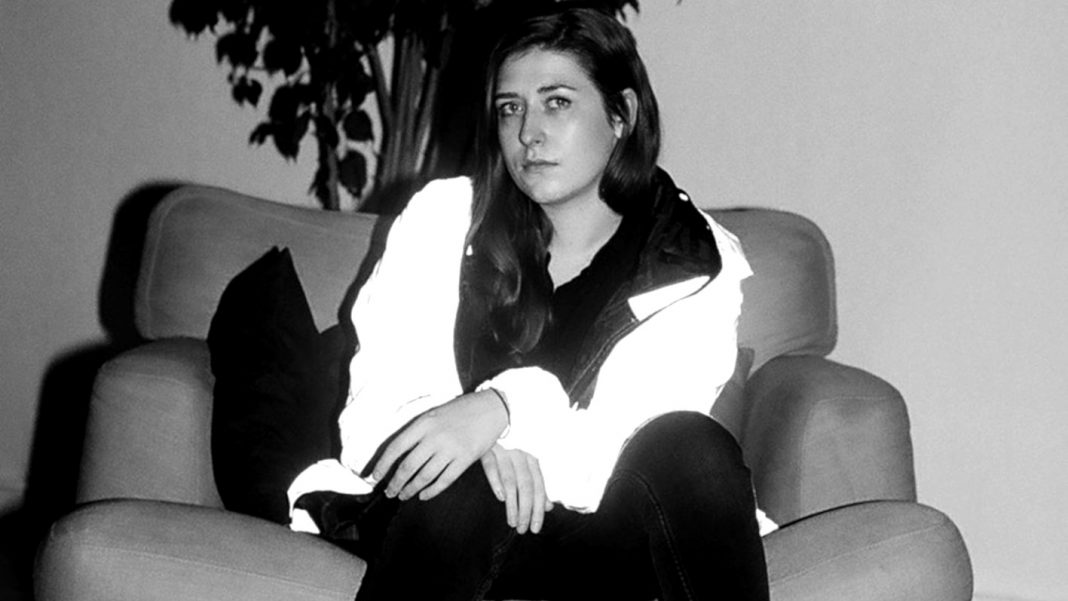
Photo: Press (Solid Blake)
Solid Blake first made a name for herself as a member of Copenhagen’s Apeiron Crew and has ever since proven herself to be as versatile as a producer as she is as a DJ. The Scottish musician has collaborated extensively with the Dane Ctrls under the name Historical Repeater and released two solo records while recently focusing on remixes for the likes of Marc Acardipane, Brainwaltzera and Pär Grinvik. While she’s been using her time during quarantine to work on new music, her mix for our Groove podcast sees her digging deep for some classic material by Drexciya and The Knife.
Even though you’re from Scotland originally and attended your first parties there, your stomping ground as a DJ however was Copenhagen’s dance scene. Working at the DORMA 21 record store was crucial, apparently. How did you first get in touch with the local scene and what led you to pick up DJing?
Looking back at my time in Glasgow, I realise I actually had a lot of encouragement to start DJing but it never stuck, mostly because of a lack of confidence and me being unable to see a niche for myself to operate in. Now honestly I think it’s probably a good thing that I had this long period of absorbing the music and the culture before taking the dive. When I moved to Copenhagen, a lot of the hangups I had kind of fell away naturally, I think both from being able to shed them via the move and just from growing up a bit in general. Regarding the record shop, I met my good friend Sara (AKA Mama Snake) there, so in that sense it was definitely very important for everything that was to come when we started playing together. But generally, I just went out a lot and made friends, and was clearly at the right place in my life to finally get involved in a way that was more public, rather than the behind the scenes stuff I focused on at home in Scotland.
And how did you get into producing music?
Ctrls was integral here. We met pretty soon after I moved to Copenhagen and he invited me to the studio to make music together. I told him I had no idea what I was doing, but he was quite confident that he could teach me along the way. That worked out pretty well, and I still go to him for feedback and advice on my own music. Our joint project, Historical Repeater, is still ongoing too.
Your debut EP Mario was the inaugural release for the in-house label of Glasgow’s La Cheetah club. What’s your connection with La Cheetah?
La Cheetah opened about a year or two before I moved away. During that period my friends and I would be there one or even two nights a week. We were already close with the crew running it so it felt like our spot in many ways. Wardy, thebooker and head of the label, and Dario, the club owner, were always pretty good on the afterparty front, too. So really, attending La Cheetah and the associated parties took up more time than a part-time job I may otherwise have had. It wasn’t until I moved away of course that I was ready to be considered as someone they would work with, but Wardy was quick on the draw with this one. He heard a small clip of a live show I played on the metro here in Copenhagen and immediately hit me up for a release. That was my first ever live show and the music was made specifically for the event. It was really validating for me to be asked for music from these guys I’d looked up to and partied with on the periphery during the early years.
Mario featured a remix by DJ Stingray, who has been described as a „mentor“ for you. While both he and you are mostly associated with the electro sound, you’ve pointed out that both firmly reject the nostalgia that arguably has informed much of the genre’s resurgence in the past decade. Who are producers that to your ears make a difference and push the envelope?
Nikki Nair’s music has been huge for me in the past year. He’s got a brilliant sense for a groove, and the textures in his music are super interesting too. D. Strange has also been showing up again and again in my sets for similar reasons. A bit further outside of the stuff I usually play, Loraine James has recently caught my attention and I’m hooked on her stuff at the moment.
You’ve said that contrast is very important to you both as a DJ and a producer. What kind of contrasts exactly do you aim for when in the studio?
This can be a lot of different things. In something I’ve been working on recently with a friend for example, we’re trying to achieve this using drastic tempo shifts. Other times it can be something as simple as playing with pretty abrasive noise and then pulling it away in an instant, leaving some lightness and space to breathe. So that falls under texture, I suppose. I’m still learning exactly what I want to do, but I keep coming back to expressing those contrasts in some way, because it’s what I like to hear.
You haven’t put out a solo release in two years but instead have been quite active as a remixer, recently reworking material by Marc Acardipane, Brainwaltzera and Pär Grinvik, amongst others. What role do remixing other people’s music play in your life as an artist and how would you characterise your approach?
I decided to commit to doing more remixes about a year ago. This was mainly because my ability to work in the studio at the time was sporadic; it took me a lot to get going and feel like I had something worth putting out. With remixes, there’s a set deadline, a clear idea and someone who I respect that I need to deliver for. The artists I decide to work with always have something special in my eyes, which can be a blessing and a curse when it comes to actually delivering a first draft. But each remix is definitely its own thing. Rather than carrying my own approach into the project, I have to listen and think about what will work for that record in particular. Forcing my own agenda – thankfully – never works.
Together with Ctrls, you form the recording and live duo Historical Repeater. What’s your working process like?
Our working process has changed a fair bit over the years, because when we started out, the project was also a fun way for Ctrls to teach me a bit about production along the way. I definitely haven’t stopped learning from him, but these days I’m more confident in asserting what I want to do and how we might get there technically. We always work in the same room, and we usually start with an idea and just take turns building on each other’s contributions, with lots of listening to other people’s music and generally having fun while we work.
You’ve been hosting a monthly show on Rinse FM and usually have a guest over for each episode. What’s your approach to programming these shows?
Sometimes I choose people when we have something fun coming up together, for example having EZY on the show was supposed to coincide with a party of his I was going to play at in Copenhagen, so I thought it would be a nice warm-up. Other times it’s just someone I’ve heard and loved the sound of; my next guest is a great example of this. Kinetic is part of the Draft crew in Barcelona, and one night after I played at a Draft party, we ended up having a long impromptu b2b at our good friend’s apartment, and I had such a great time I knew I wanted to recreate that somehow. The show is a great outlet for that kind of thing.
What was the idea behind your contribution to our Groove podcast?
Having a monthly radio show means that my podcast mixes have to be something else in order to be interesting – to me, at least. On Rinse, I try to focus on mostly playing music I’ve bought in the month leading up to the show, which keeps me busy digging and the DJ sets fresh when I’m out playing. I used to use podcast mixes for this, but now I feel I have the opportunity to dig into some older stuff and some personal classics alongside the new stuff. I tried to build this mixt around that idea, and I had so much fun doing it because I got to have a few fun throwback moments throughout the recording.
Last but not least: what are your plans for the future?
Lockdown has got me back in the studio more seriously, both working on my own stuff and on a very exciting new collaborative project. Hoping I can keep that up when – and if – touring resumes, I’m still working towards a new live set. This time away from clubs has really cemented how much I love DJing, too, though. So hopefully also more of that, when it’s appropriate and allowed.
Stream: Solid Blake – Groove Podcast 261
01. Mani Festo – Trackside
02. Drexciya – Bang-Bang
03. Mat Carter – Solid Gear
04. Cyan85 – Data Lag
05. The Knife – You Make Me Like Charity
06. Vigile – Empty Space
07. 96back – 143 Connections
08. codebox – code_x
09. Anz – Invitation 2 Dance
10. Asmus Odsat – Burn the Datacenters
11. Gian – Serious
12. ?????? – ??????
13. Lisene – Class of ’92
14. J.Manuel – Flowers Forever
15. Hamilton Scalpel – Airfoil
16. Noah Tucker – Crush On U




